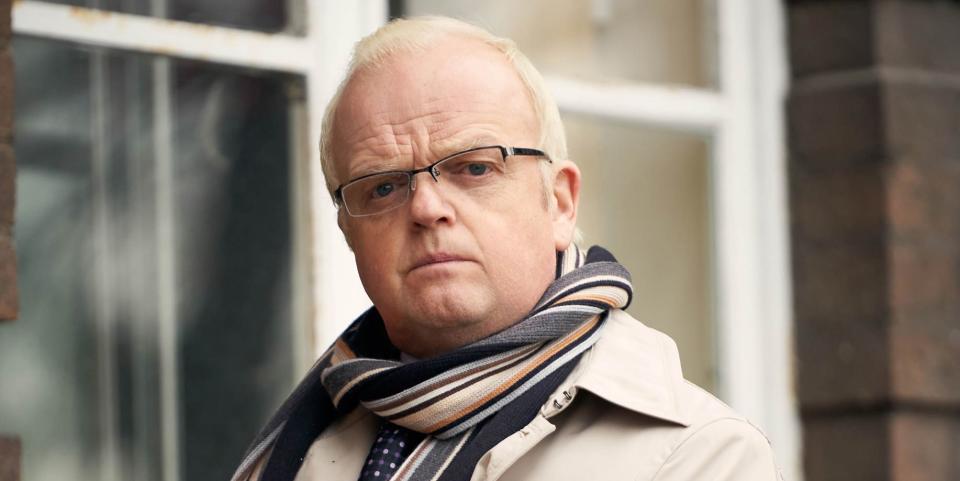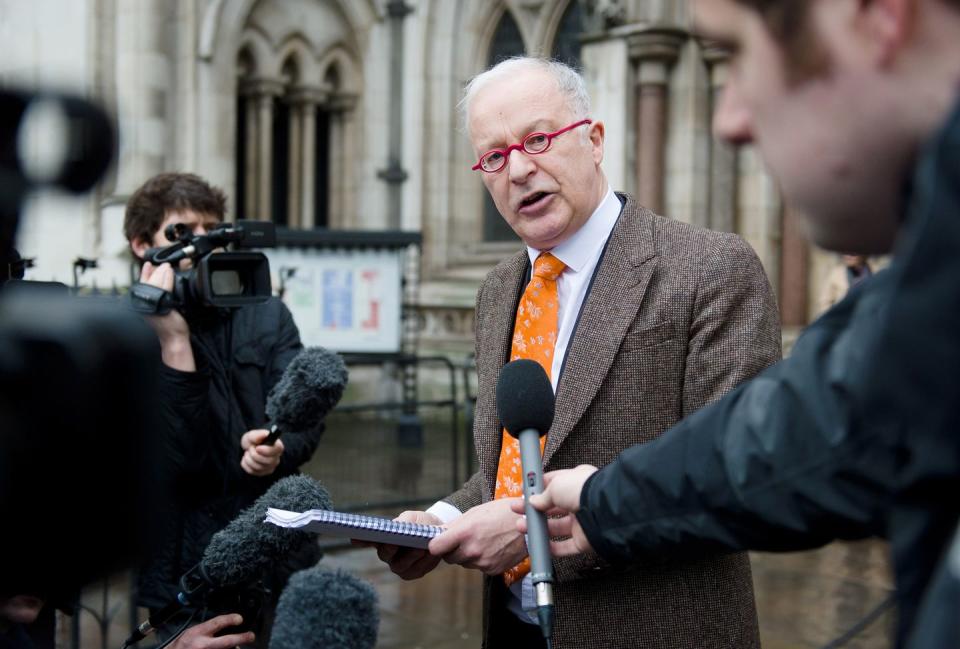Phil Shiner now – what happened after Danny Boy

Danny Boy spoilers follow.
The Battle of Danny Boy, named after a nearby vehicle checkpoint, became mired in controversy when Brian Wood, a solider in the British army, and his fellow troops were accused of the unlawful murder and torture of Iraqi civilians while on duty in 2004.
The Al-Sweady enquiry, christened after Hamid Al-Sweady, a 19-year-old Iraqi who was said to have been unlawfully killed by British forces, was launched to look into those allegations and countless others, thousands of which were brought by Phil Shiner, who was part of the Iraq Historic Abuse Team (IHAT) that looked at the treatment of Iraqi civilians by UK armed forces personnel from 2003 to July 2009.
The human-rights lawyer's firm, Public Interest Lawyers, received millions of pounds in legal aid to fund his crusade against British soldiers. A significant portion of the funds were used to pay "middle men" to find cases in Iraq that could be used against Wood and his colleagues.

Related: Brian Wood now - what happened after Danny Boy
The Al-Sweady enquiry, which lasted for five years and cost almost £25 million, heard 13-months of evidence relating to Wood and Danny Boy.
While the judge found that some Iraqi detainees had been mistreated by British soldiers, the more substantial claims were described as "wholly without foundation".
Shiner admitted that he had acted recklessly, but he denied acting dishonestly in an attempt to mislead the courts. He was found guilty of 22 misconduct charges (via The Guardian) and struck off for dishonesty in 2017.
Public Interest Lawyers is also now defunct.
In 2020, former defence secretary Sir Michael Fallon said (via The Telegraph): "Phil Shiner has never really apologised and it is now time that he did. He has never shown any remorse for the misery that so many veterans and their families have suffered for years."

In 2017, Shiner petitioned for bankruptcy and reportedly had £7million worth of debts. He shifted assets totalling almost half a million pounds to family members before claiming that he was bankrupt, in turn declaring that he was unable to pay back his creditors.
Justin Dionne, Official Receiver from the Insolvency Service, said (via Legal Futures): "Mr Shiner thought he could be clever by giving away his assets to his family members so that when he declared himself bankrupt there wasn't anything to pay his creditors with.
"Sadly he was mistaken as all his activities were easily spotted and we have since been able to recover a substantial amount of money, even if it was in his family's name."
Shiner's bankruptcy restrictions were extended to six years – normally 12 months – following his "unacceptable behaviour" (via Gov.uk). He is also not allowed to take control of or manage a company until 2024 without legal permission.

Related: Normal People star's new drama explores a world she "didn't know anything about"
Shiner's fall from grace also saw him stripped of an honorary law doctorate that he received from the University of Kent in 2012.
He had been named Human Rights Lawyer of the Year in 2004 for "outstanding skill and tenacity in taking test cases to protect the rights of Iraqi civilians tortured and killed by British forces". In 2007, he was crowned the Law Society's Solicitor of the Year.

It was reported last year by The Telegraph that Shiner could become the sole individual charged in connection with historic abuse claims regarding the Iraq War. British soldiers who have been accused of committing war crimes in Iraq are unlikely to be prosecuted.
Around 3,400 allegations of unlawful killings and ill-treatment were brought against British soldiers, according to the government. Some 70 percent of the allegations "were sifted out and never reached full investigation" due to "claims where there was not a case to answer, or it was considered not proportionate to conduct a full investigation".
The government is attempting to stamp out what it calls "vexatious claims" against individuals like Wood (via BBC), with a five-year time limit on all criminal prosecutions unless evidence that significantly supports those claims surfaces.
Digital Spy's digital magazine is back – and we've got an EXCLUSIVE interview with Dave Bautista. Read every issue now with a 1-month free trial, only on Apple News+.
Interested in Digital Spy's weekly newsletter? Sign up to get it sent straight to your inbox – and don't forget to join our Watch This Facebook Group for daily TV recommendations and discussions with other readers.
You Might Also Like

 Yahoo Movies
Yahoo Movies 